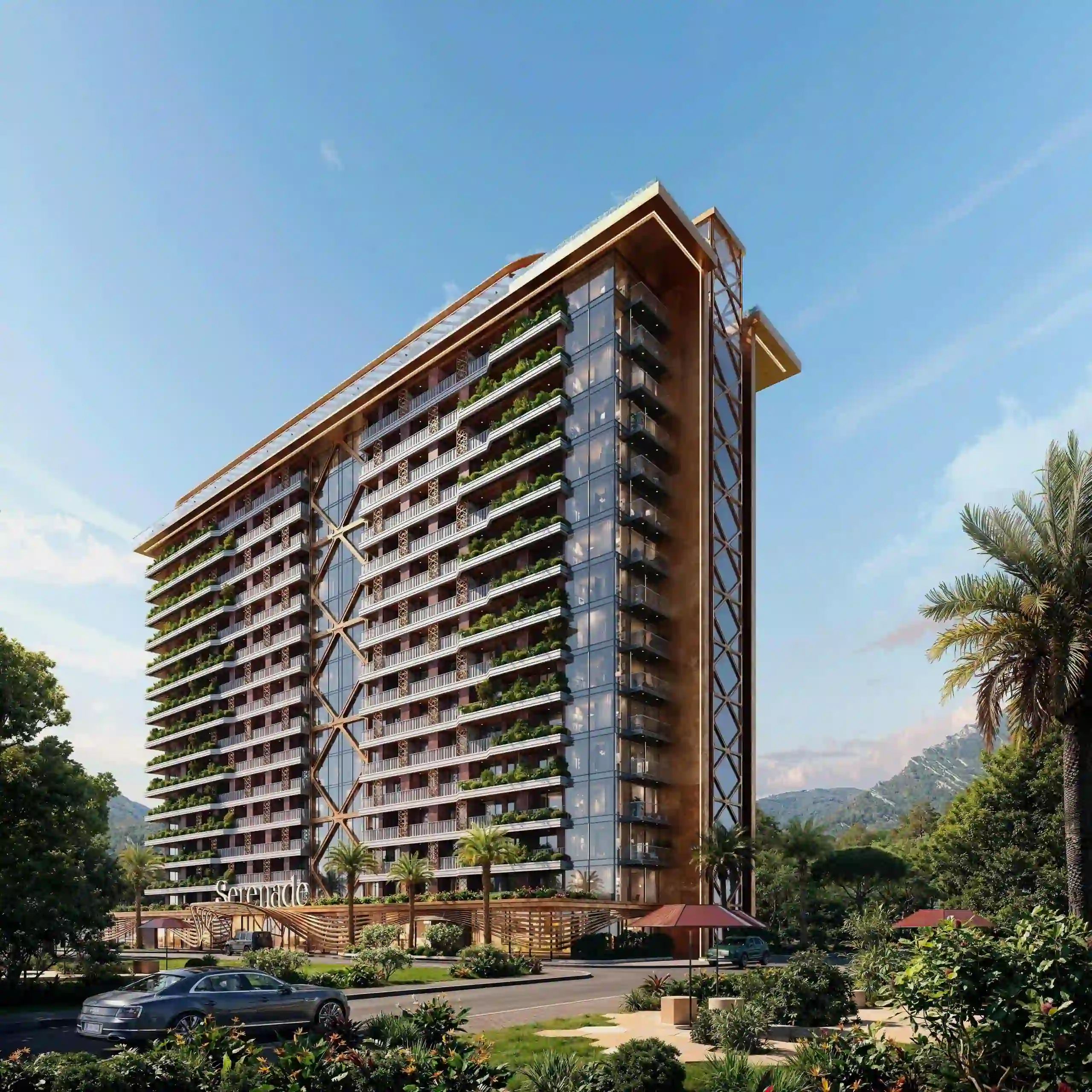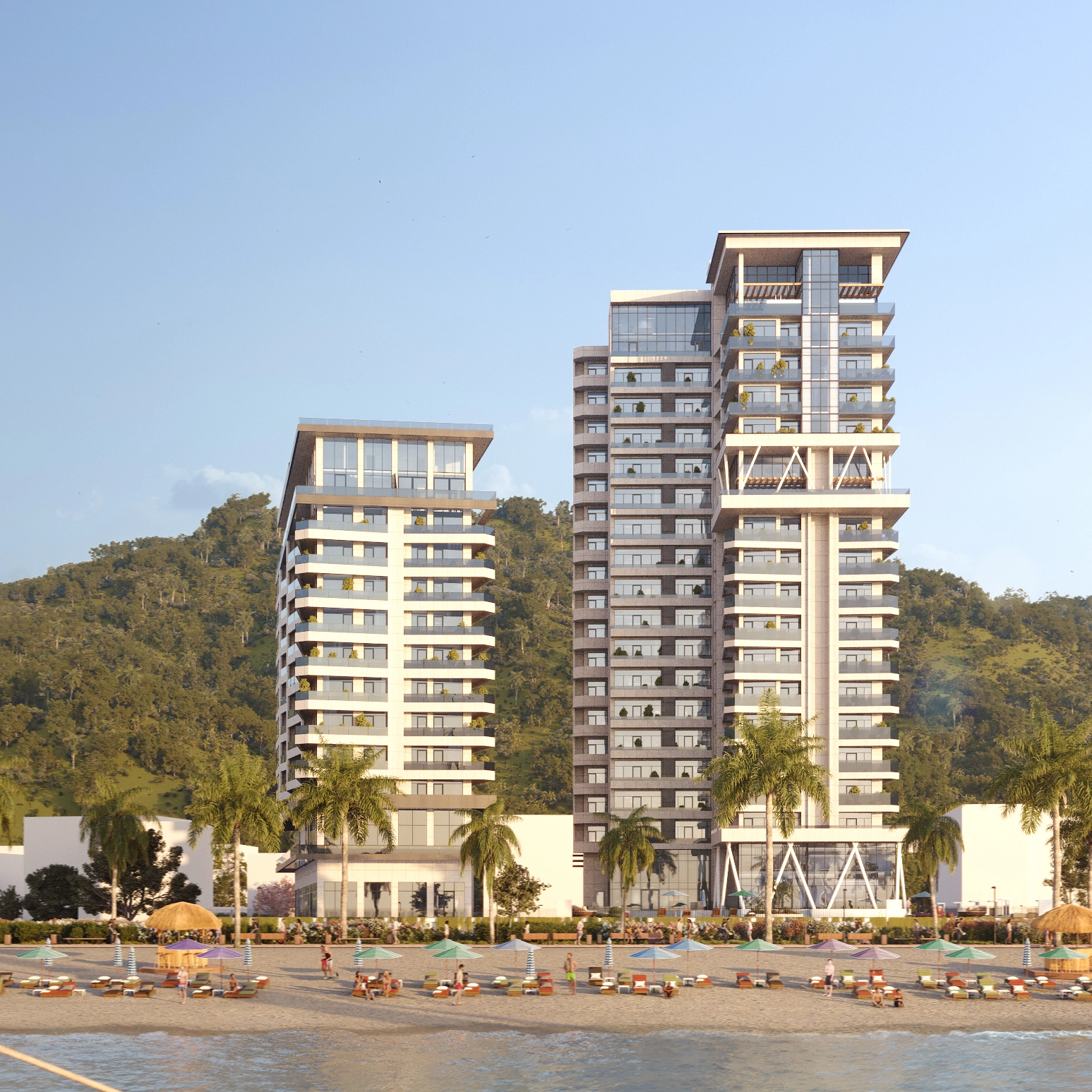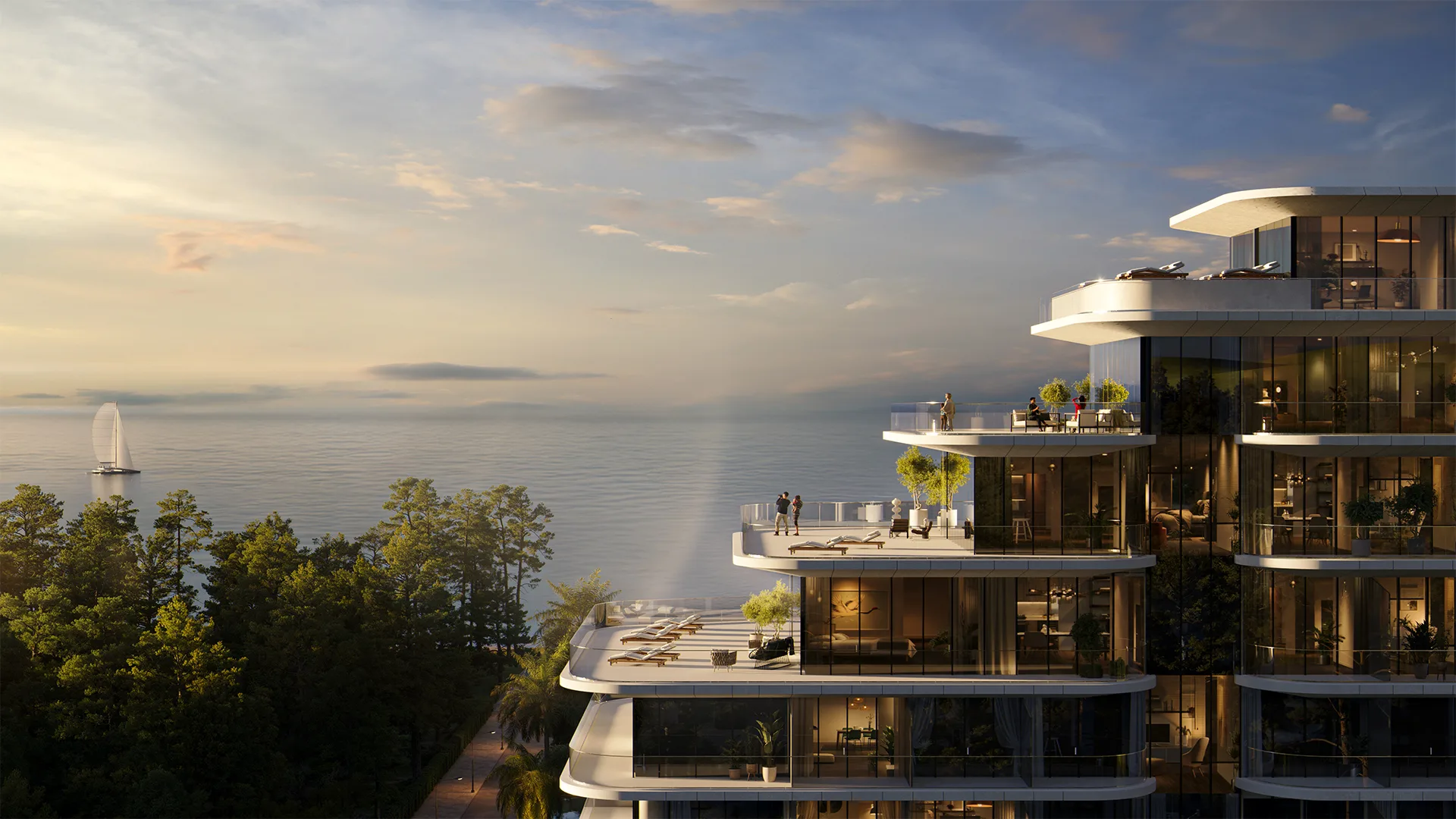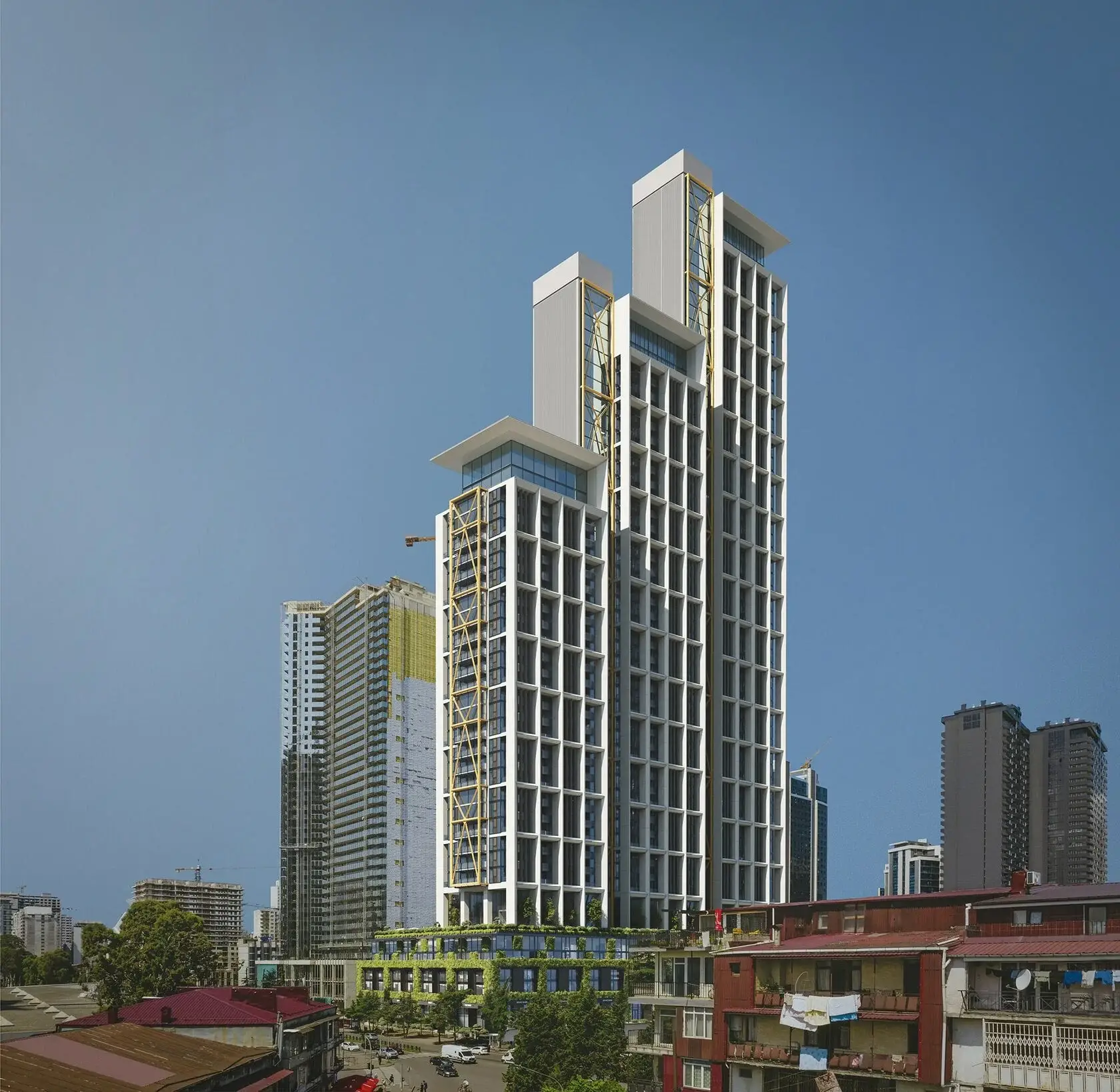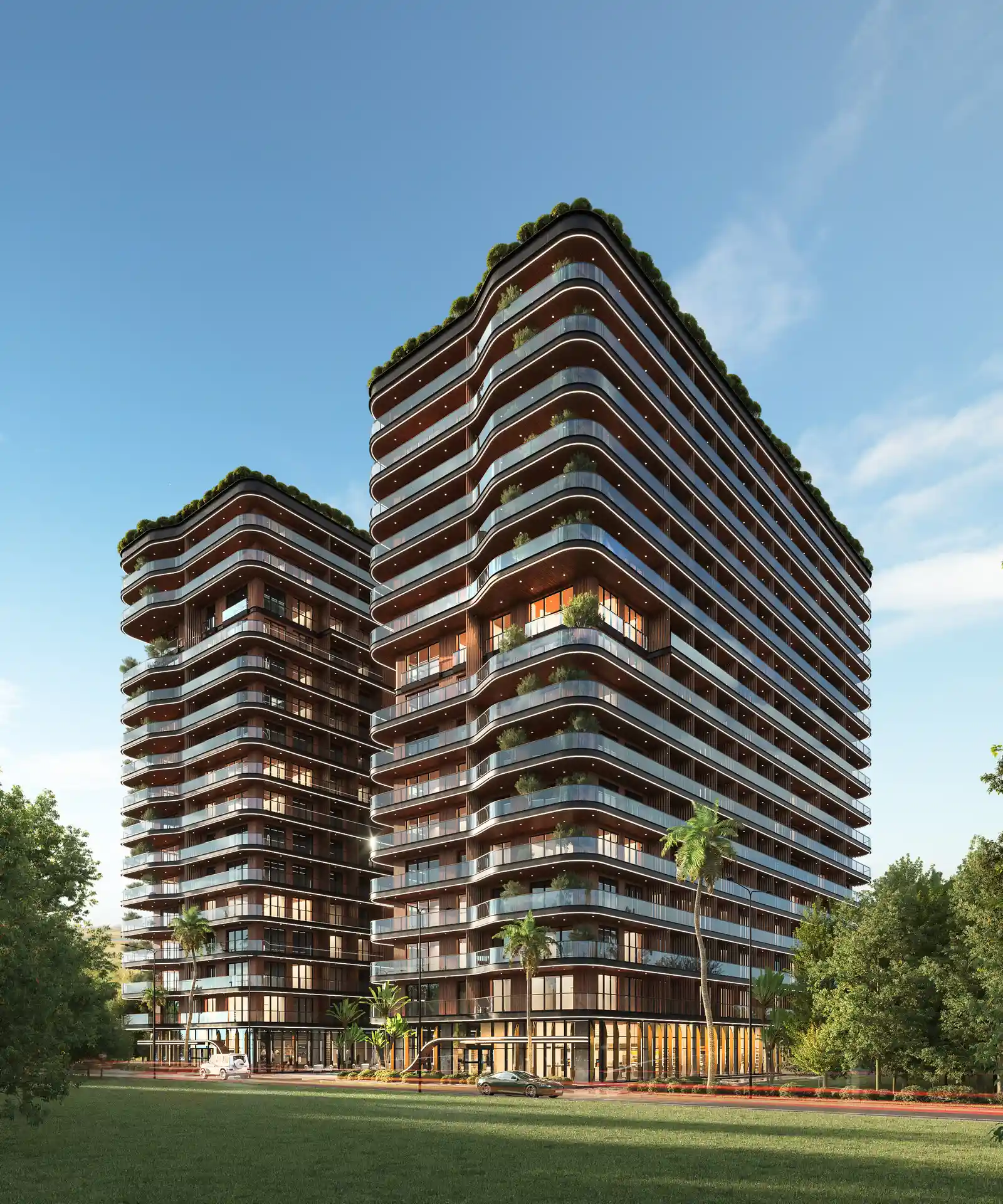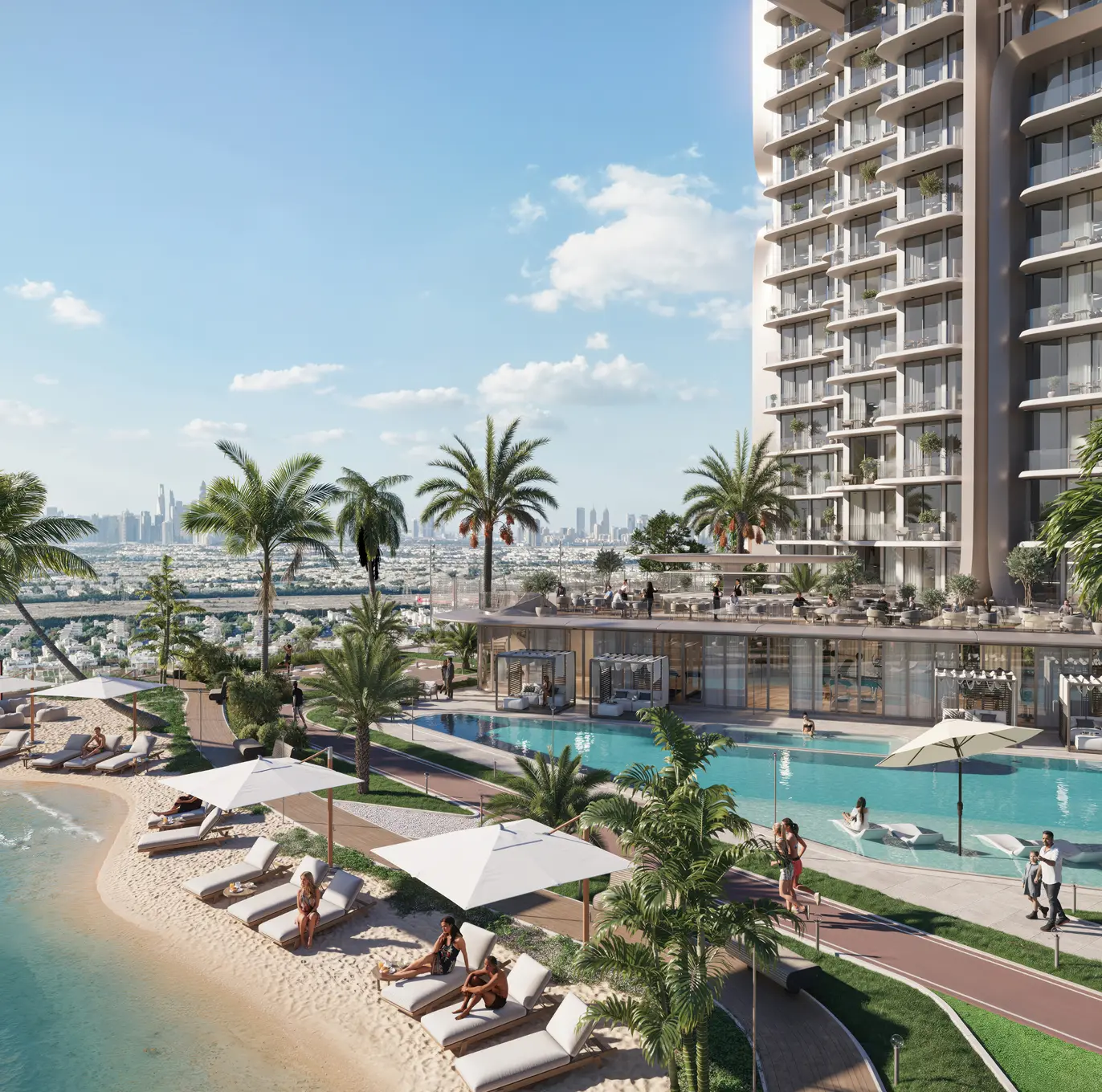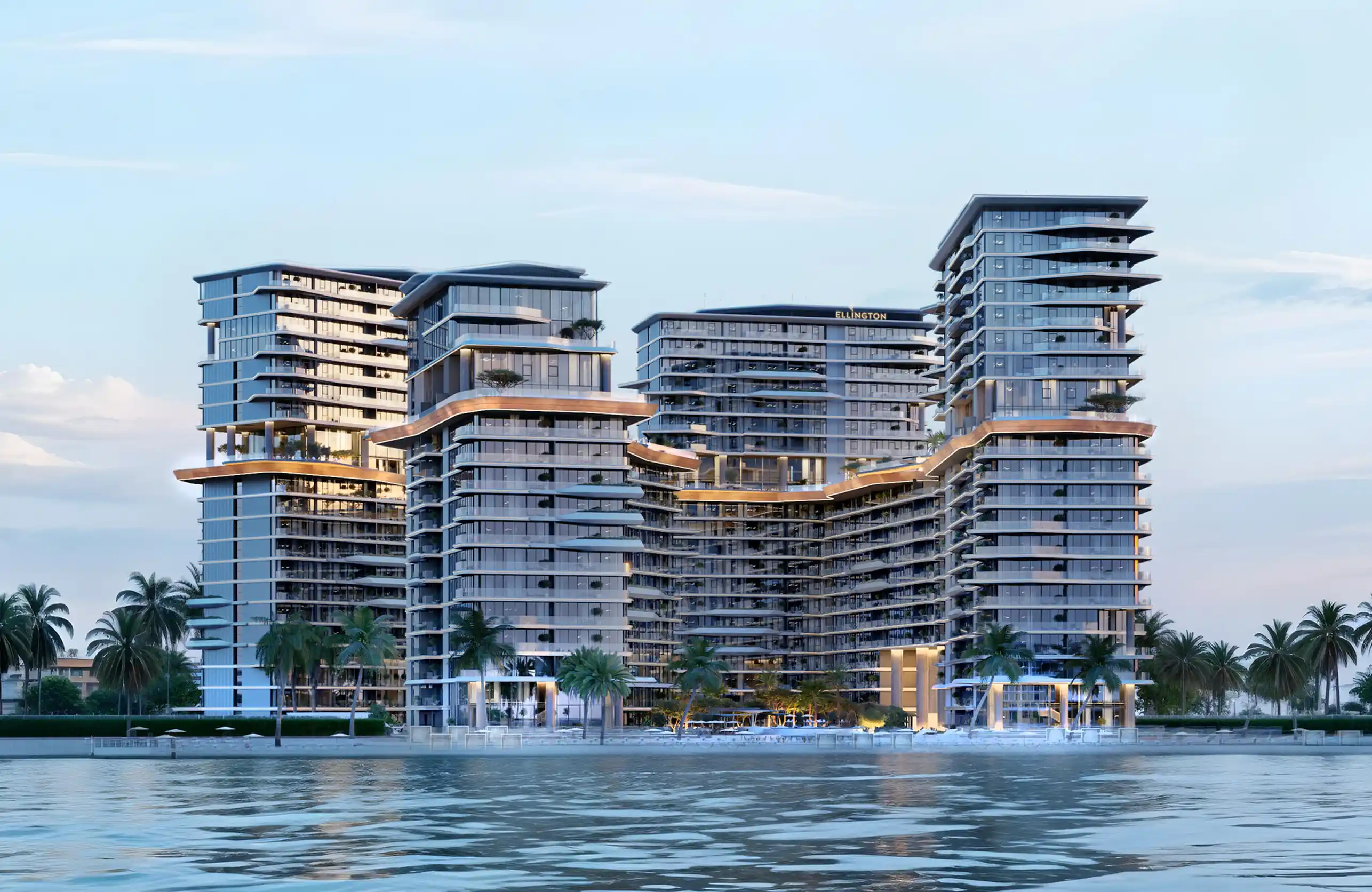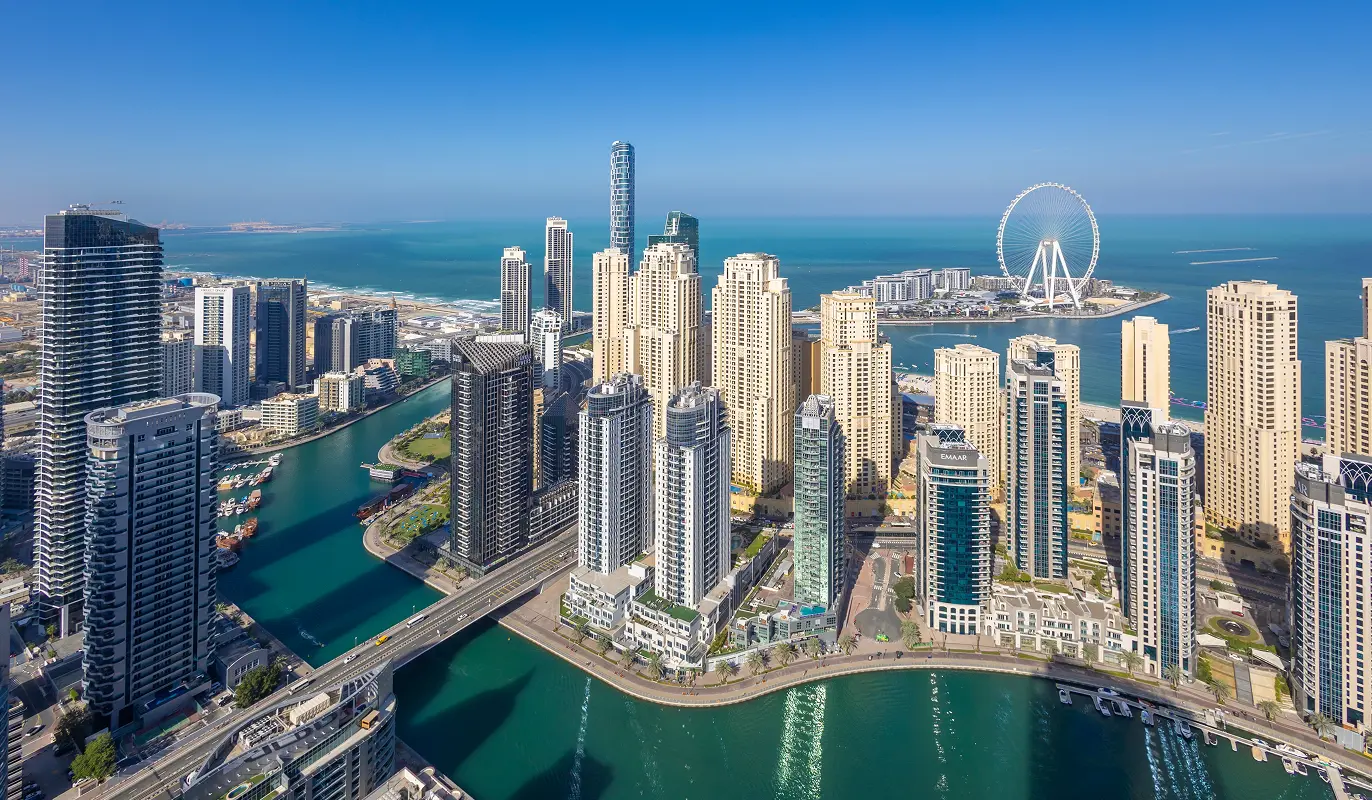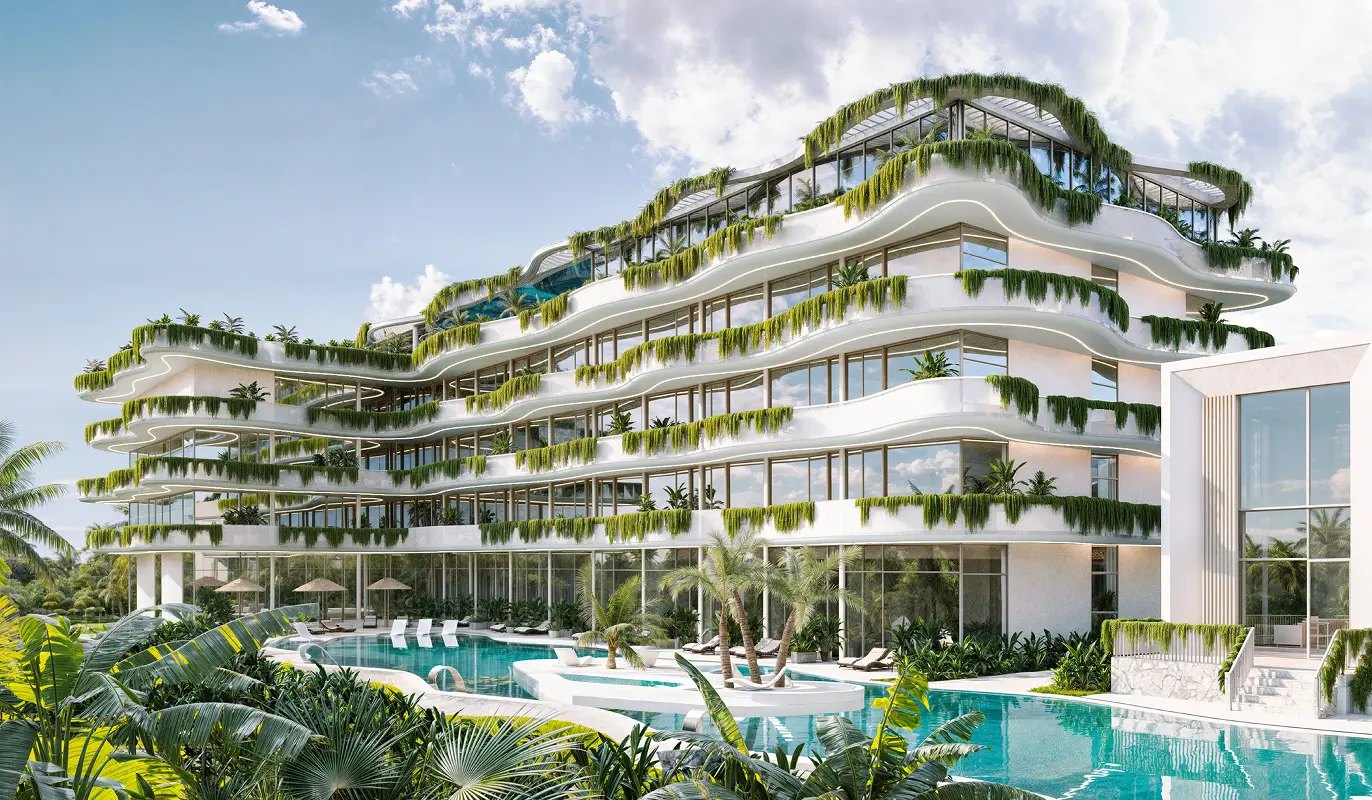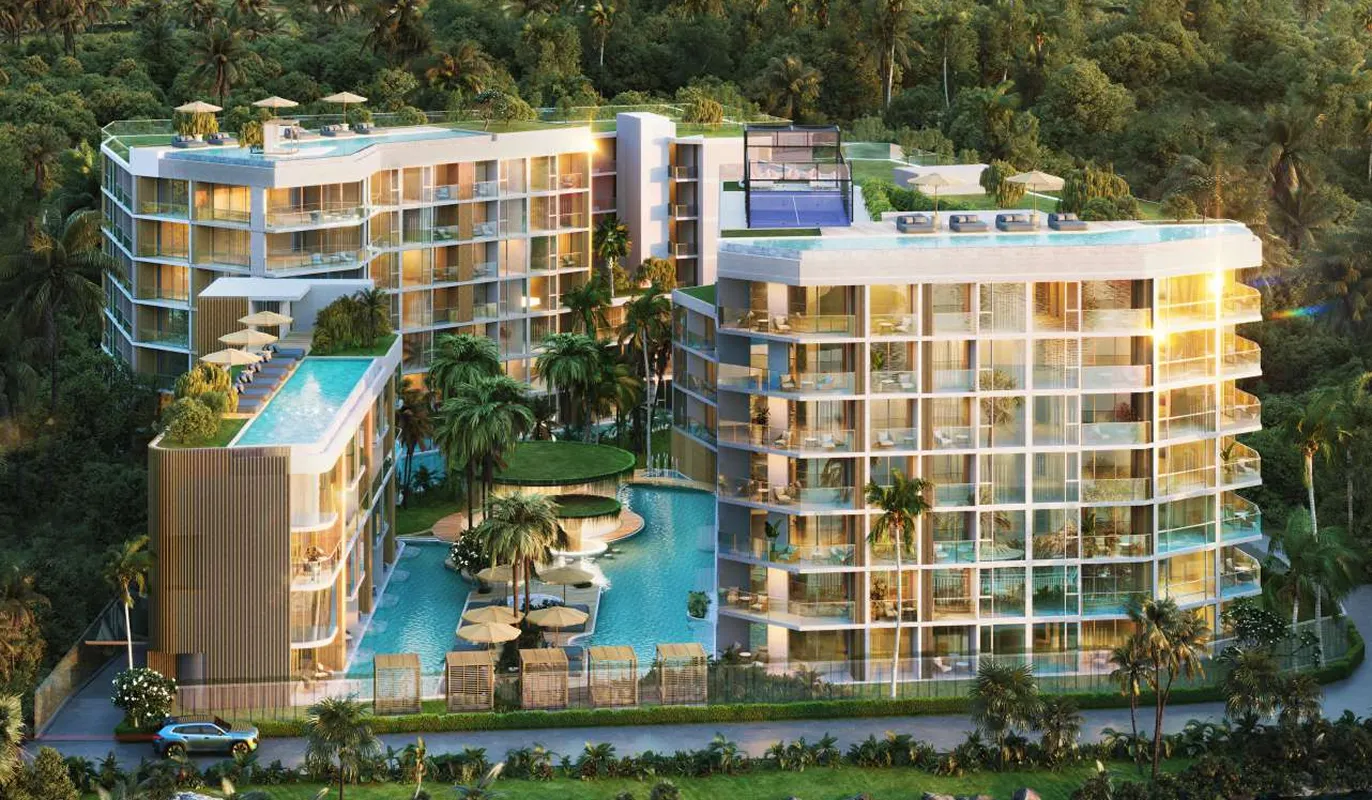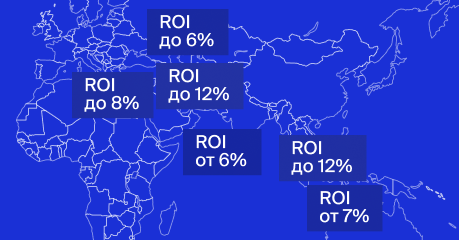How to get residency in Georgia through $100,000 real estate investment
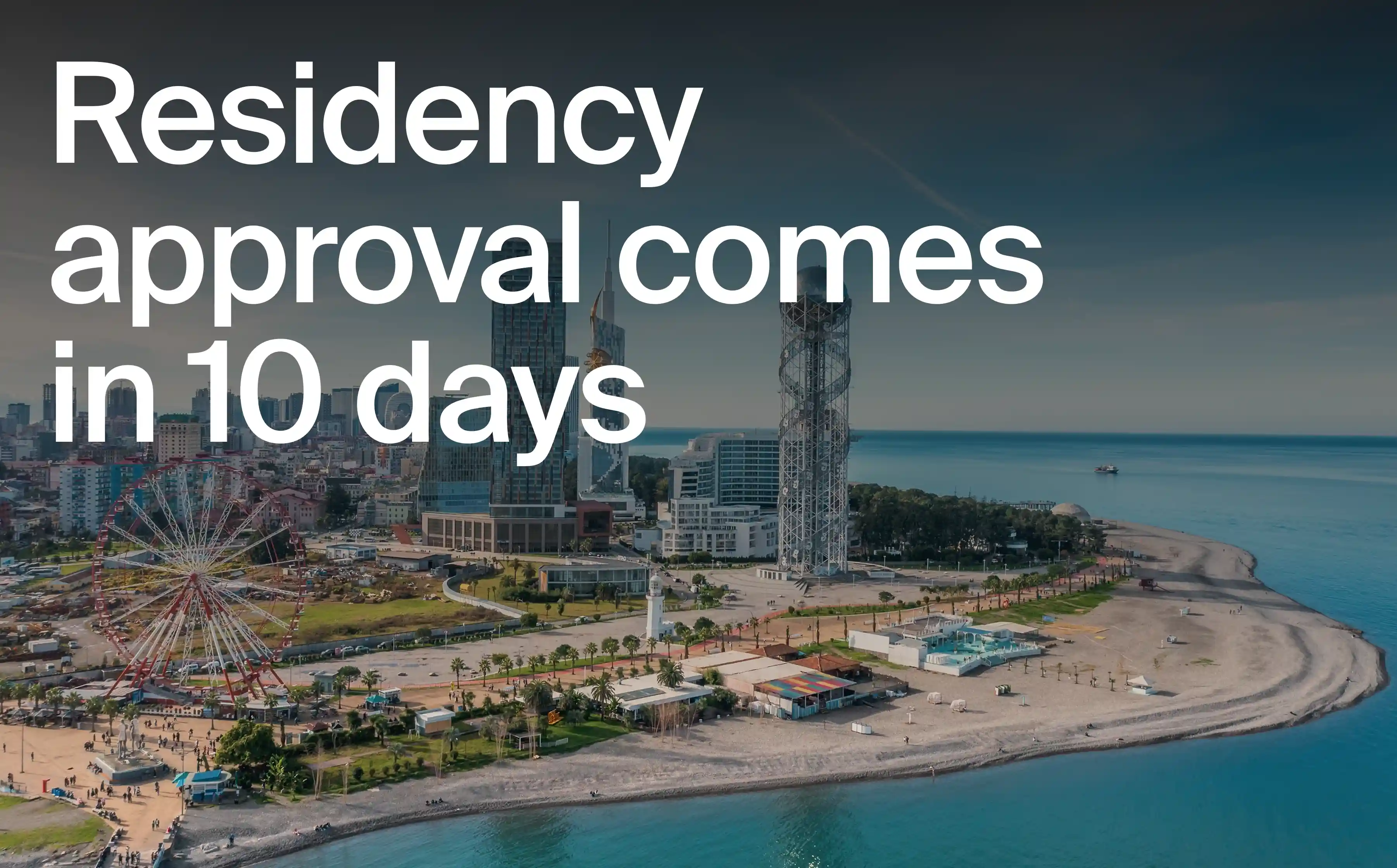
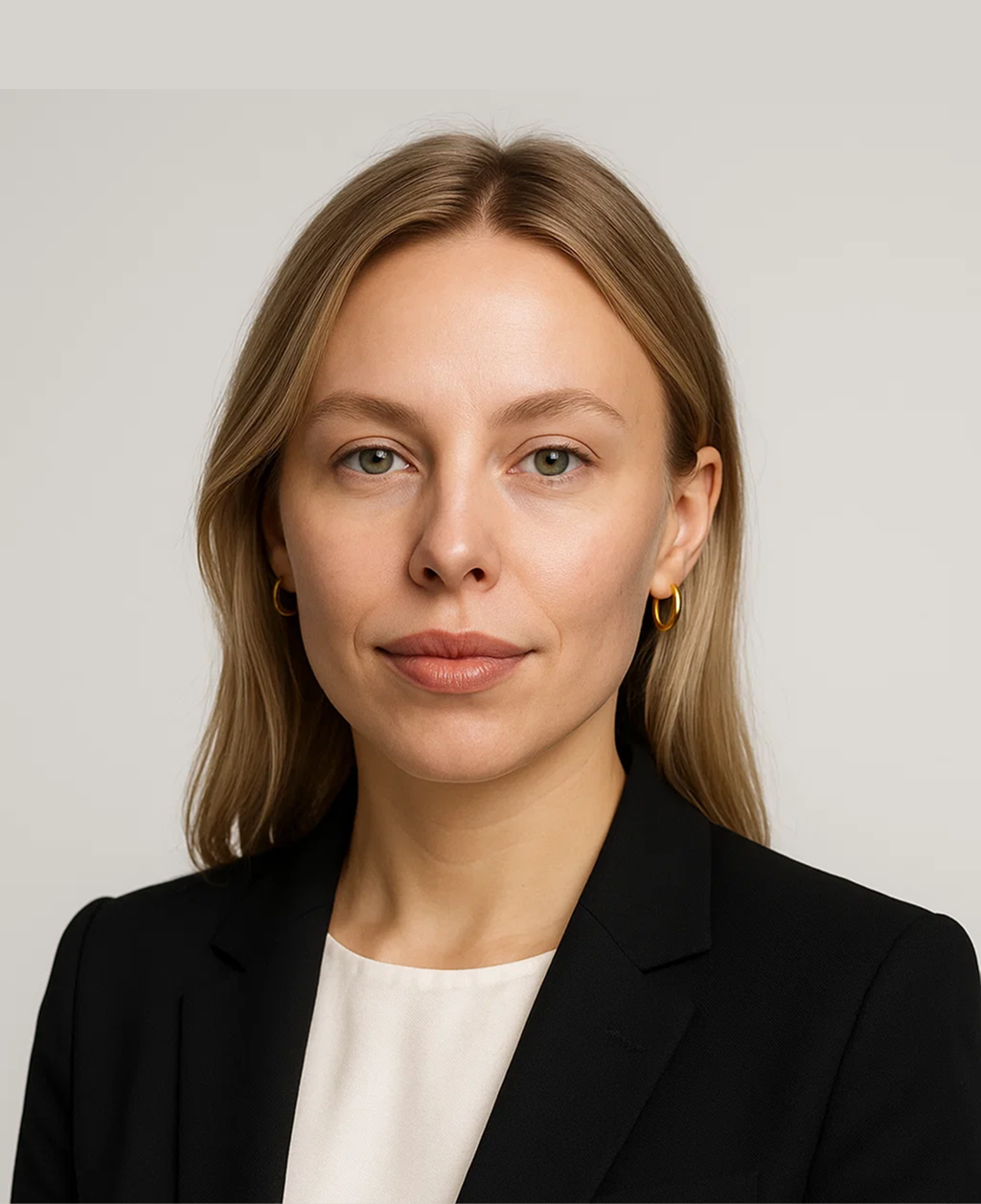
Ksenya Kadesnikova
Investment-Focused Market Analyst
For globally mobile people, the challenge is no longer finding a second residence — it’s finding one that actually works. Georgia offers a rare answer: a system where legal residency, lifestyle quality, and financial efficiency align.
Foreign nationals can secure a residence permit by investing $100,000 or more in real estate — with no relocation requirement, no language test, and processing in as little as 10 days.
This guide breaks down how the residency program works, what to buy to qualify, and why more and more investors, entrepreneurs, and remote professionals are choosing Georgia not just for its entry rules — but for the life it makes possible.
10–30 days
Obtaining residency by real estate purchase
$100,000
Minimum real estate investment
7–12%
Annual rental yields in Batumi
Disclaimer
All information related to the Georgian real estate market has been reviewed and verified by Neginski experts. Details regarding the residence permit process are provided for general informational purposes only and do not represent legal or immigration advice.
Neginski assists exclusively with property selection and purchase; for residency matters, please consult the relevant authorities or licensed professionals.
Why choose Georgia for residence?
Georgia has emerged as one of the most practical and attractive destinations for those seeking a new place to live — not only for lifestyle, but also for strategy. With its low entry threshold, investor-friendly laws, and clear long-term path to residency and citizenship, the country offers something few others do: an ecosystem where your capital and your day-to-day life can grow in parallel.
1. Opportunity to obtain residency through real estate
Georgia offers one of the most accessible residency-by-investment programs in Eurasia. By purchasing property worth $100,000 or more, you become eligible for a temporary residence permit with approvals often issued in less than 30 days.
After 6 years of temporary residency, you can apply for permanent status. Hold permanent residency for another 5 years, and you become eligible for Georgian citizenship — gaining access to healthcare, social security, tax benefits, and visa-free travel to numerous countries.
2. Quality of life meets financial efficiency
What makes Georgia attractive isn’t just cost — it’s the ratio of quality to cost. You can live here affordably without compromising on safety, healthcare, or cultural capital. In fact, Georgia ranks 57th globally in the 2025 UN Human Development Index, outperforming nearly all post-Soviet countries outside the Baltics.
Key data points:
Life expectancy: 74.5 years
Human Development Index score: 0.844
Gross national income per capita (PPP): $28,258 — up 173% over the past decade
The economics of everyday life are equally rational:
$400–600 per month for a single person, excluding rent
$400–700 per month for rent of a one-bedroom apartment in cities like Tbilisi or Batumi
$1,000–1,300 per month for a family of four, excluding rent
Total costs vary significantly depending on personal expectations, lifestyle, and housing preferences. While central Tbilisi or Batumi tends to be more expensive, smaller cities and suburban areas offer more affordable options. Ultimately, your monthly budget will reflect your individual standards of comfort, location, and services.
3. Investor-oriented tax environment
Georgia doesn’t just offer low taxes — it offers predictability. Investors benefit from a flat, non-progressive model where reporting is simple and obligations are clear.
Core benefits:
20% flat personal income tax
15% corporate tax, but only when profits are distributed
5% rental income tax
0% capital gains tax after two years
0% inheritance tax
1% tax on revenues up to GEL 500,000 (~$180,000) per year for self-employed individuals
This structure eliminates the need for complicated tax planning or international accounting maneuvers. For many, Georgia becomes the “base country” for structuring diversified income streams in a compliant, low-friction way.
4. Geo-strategic location with rising tourism-driven returns
Georgia’s geography is often framed abstractly — “between Europe and Asia” — but the investment case is concrete. The country sits at the intersection of tourism, logistics, trade, and remote work migration, and its economic performance reflects that.
+9.3% GDP growth, outpacing all regional peers
1.1% inflation, with core inflation at 1.6%
+24.9% YoY growth in tourism revenue, driven by regional and Gulf markets
For property owners, this translates directly into cash-on-cash return:
Short-term rental yield in Batumi: 10–12%
Long-term yield: 7–10%
Property prices appreciate by 10–30% during the construction phase, and by 6–9% annually after completion
Add to this the 10-year payback horizon and full ownership rights for foreigners — and Georgia becomes more than just a market with potential. It becomes a functioning income engine.
5. Full infrastructure access for foreign residents
Unlike in some countries where residence status has limited practical value, in Georgia, it comes with direct, tangible access to essential systems — from finance to healthcare.
With a residence permit, you can:
Work legally or start a business without requiring a local partner
Open personal and business bank accounts
Apply for mortgages and loans on the same terms as citizens
Register vehicles, obtain a driver’s license, and import property
Access public healthcare, including emergency services and routine care
This makes Georgia particularly effective for those looking to establish a multi-year presence — whether to live, operate a business, or secure a family base abroad.
6. Balanced lifestyle across diverse natural and urban settings
Georgia is one of the few countries where “live where you invest” isn’t a slogan — it’s reality. Here, investors don’t just hold assets on paper. They live in a country that offers natural beauty, urban infrastructure, and personal comfort — all within reach.
The geography is compact, but diverse:
Black Sea coast — humid summers (+25°C to +30°C), mild winters (+5°C to +10°C), resort lifestyle with active expat hubs
Mountain regions like Kazbegi — cool summers, snowy winters (–5°C to –10°C), perfect for hiking, skiing, and remote retreats
Tbilisi and the central belt — temperate climate year-round, a balance of seasons, culture, and modern city life
You don’t have to choose one — it’s all within a few hours’ reach. In a single day, you can go from alpine views to the sea.
The lifestyle is equally well-balanced:
Low crime, walkable cities, and growing expat communities
Affordable comfort — from quality housing to healthcare and fresh local food
Rich daily life — nature, wine, culture, cafes, coworking
Whether you're a family seeking relocation, a remote worker exploring hybrid options, or an investor building a long-term base, Georgia offers a rare combination: personal quality of life with financial upside.
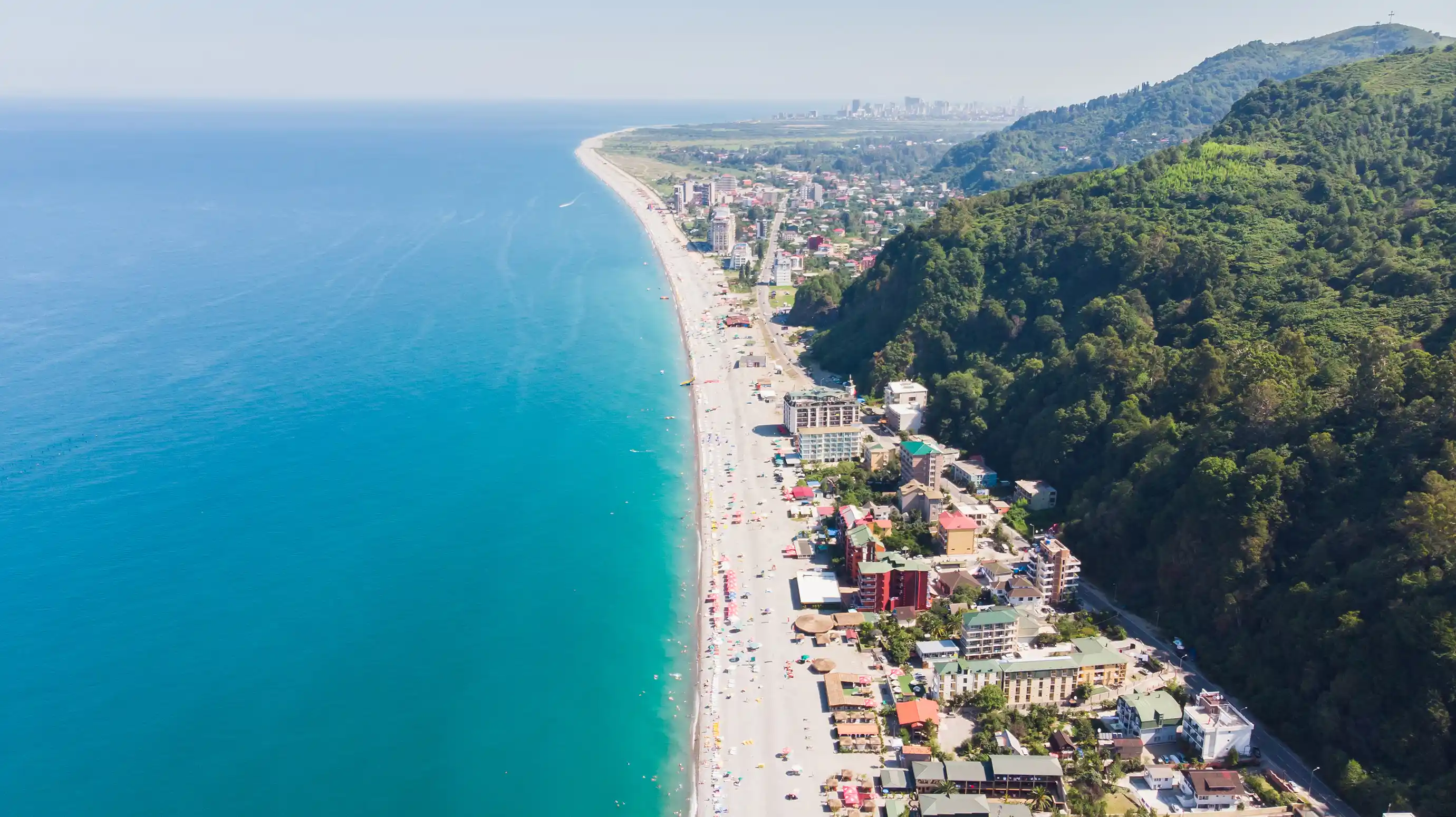
Need help finding the right property?
We vet every developer for track record, financial strength, and buyer feedback so only secure, high‑potential options make the cut.
How to qualify for Georgian residency by investment
Georgia’s residency-by-investment program provides a straightforward, asset-backed path to legal residence — free from language tests, minimum stay requirements, or bureaucratic hurdles. By investing in real estate, foreign nationals can secure legal status without relocating full-time or navigating complex procedures.
Who is eligible?
The program is open to any foreign national over the age of 18, regardless of country of origin. Residency can also be extended to the applicant’s spouse and dependent children.
To qualify, the main applicant must:
Prove the legal origin of investment funds
Purchase a qualifying real estate
Complete a residency application form
Submit biometric data
There are no interviews or language or education requirements. Prior presence in Georgia is not mandatory before the purchase of property.
Investment requirement — $100,000 minimum
To qualify for residency, the applicant must invest in one or more residential or commercial properties in Georgia, with a total market value of at least $100,000.
The property does not need to be completed at the time of purchase — off-plan and under-construction units are allowed. However, a residency application can only be submitted once four conditions are met:
The unit is fully completed.
The full purchase amount has been paid.
Ownership is registered in the applicant’s name in the national registry.
A certified Georgian appraiser has confirmed the market value of the property.
The timing matters. Buying early may offer better pricing and a wider choice of properties, but it does not speed up the residency process. Legal status can only be requested after the project is delivered and ownership is formalized — not at the point of contract.
Why now is the time to apply?
A new law passed in 2024 will increase the minimum investment threshold from $100,000 to $150,000, effective March 1, 2026 — a 50% rise.
To qualify under the current rules, two conditions must be met:
The selected property must be completed — or scheduled for completion no later than the end of Q1 2026.
The full purchase price must be paid by March 1, 2026.
This creates a clear, time-limited opportunity to secure residency at the lower investment threshold.
What property to buy in Georgia to qualify for residency
To qualify for a residence permit in Georgia, you must invest at least $100,000 in one or more completed residential or commercial units. That’s the legal threshold — but in practice, choosing the right property means balancing eligibility, return potential, and delivery timelines.
Many investors make the same choice: they buy in Batumi. At Neginski, we recommend Batumi as a prime location for its consistent rental yields, strong tourism-driven demand, and growing resale value.
Why Batumi works — both for residency and returns
Batumi is not just a resort. It’s Georgia’s most investment-ready real estate market, combining affordability, liquidity, and sustained tourist demand.
What makes Batumi stand out:
Consistent rental demand. With 5 million visitors expected in 2024, almost every tourist passing through Georgia visits Batumi — making it the country’s top short-term rental market.
Urban development without urban sprawl. Over the last five years, Batumi has added shopping malls, an international food scene, and app-based taxi and delivery services — while remaining geographically compact due to its mountain-backed coastline.
Scarcity built in. The city can’t grow outward, which makes quality inventory limited — and long-term price growth more predictable.
Familiar format, low entry point. The majority of new developments follow familiar condo-hotel models, with reception, management, and the option to self-manage or hand off to a rental operator. Entry starts well below $100,000 — with flexible payment plans.
Investment property in Batumi
What types of property qualify — and what actually works
Legally, both residential and commercial units can be used to apply for residency. In reality, more than 90% of foreign buyers choose residential apartments, and here’s why:
Apartments in new-builds especially near the sea are easier to resell or rent, and many are structured for hybrid use — live in part of the year, rent the rest.
Commercial units or serviced apartments can yield more, but they come with higher utility fees and are less liquid in resale.
Villas exist, but usually exceed $250,000 — and are typically bought for personal use rather than investment.
How much to invest — and what that gets you
Below are typical price points for shell-condition units — no finishing or furniture — in Batumi. These prices reflect entry thresholds, not premium locations or furnished units.
| Property type | Starting price | Typical size | Payment flexibility |
|---|---|---|---|
|
Studios |
$45,000+ |
25–35 m² |
$5,000+ down, then $600+ per month |
|
1-bedroom |
$60,000+ |
45–50 m² |
$8,000+ down, then $800+ per month |
|
2-bedroom |
$80,000+ |
60–70 m² |
$10,000+ down, then $1,000+ per month |
|
3-bedroom |
$100,000+ |
80–100 m² |
$20,000+ down, then $2,000+ per month |
|
Villas |
$250,000+ |
Custom |
One-off or staged deals |
Batumi is not just a qualifying zone — it's a functioning investment market. Here’s what the data shows:
7–10% annual return on long-term rentals
10–12% on short-term vacation lets
Capital appreciation: average 6–9% per year, with 10–30% growth during construction
Buying real estate in Georgia qualifies you for residency — but not all qualifying properties are equal. At Neginski, we help clients focus not just on meeting the $100,000 mark, but on choosing assets that will protect capital, grow in value, and unlock income.
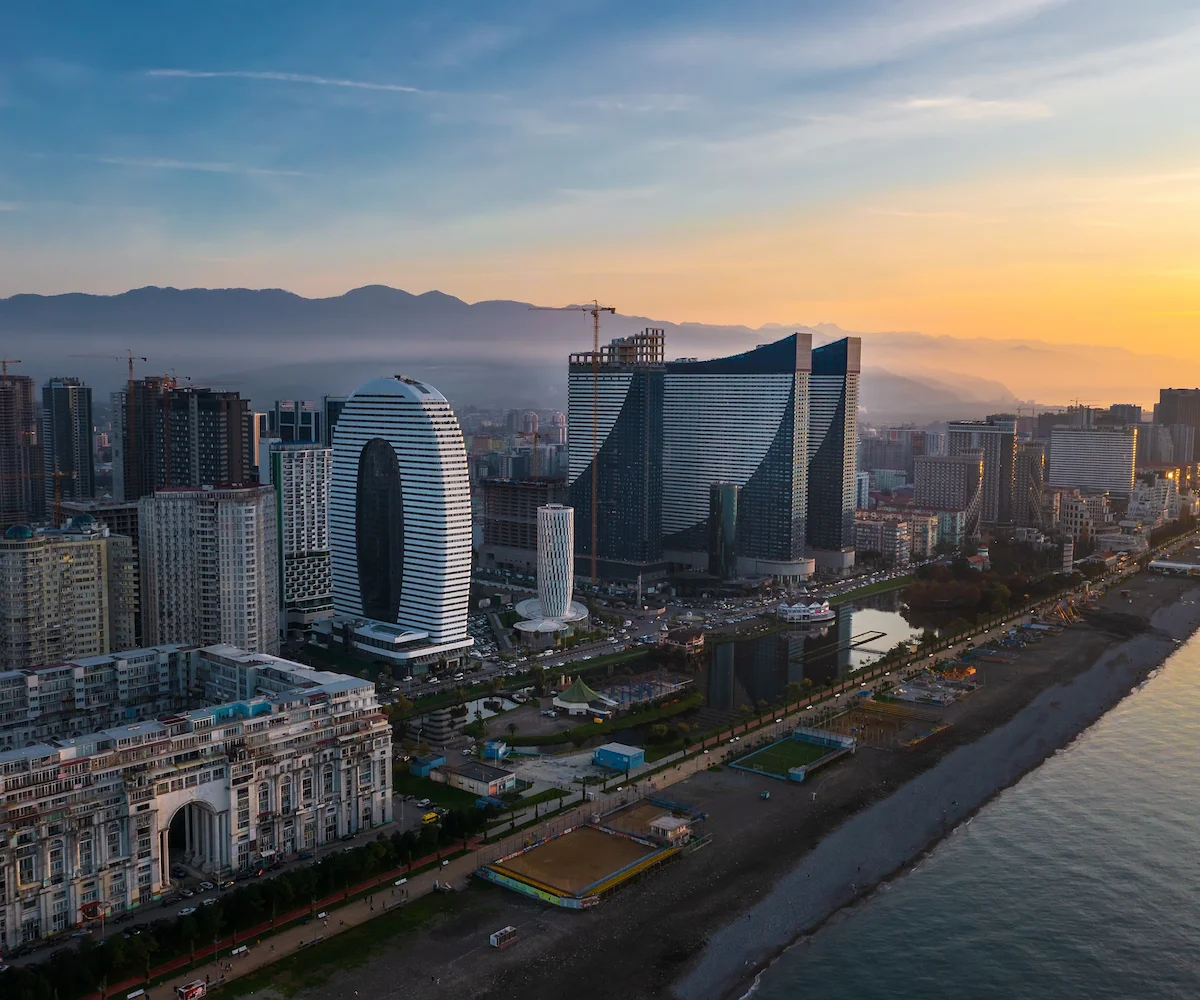
Know your returns before you invest
We’ll assess your goals and opportunities and run the numbers.
Taxes and maintenance costs for property owners in Georgia
Georgia offers one of the most transparent and investor-friendly tax environments in the region. Property ownership comes with minimal fiscal pressure, while residency unlocks access to simplified personal and corporate tax regimes. Here's what you need to know — and where the levers of optimization lie.
At purchase — 0.1%
When you register ownership in Georgia’s national registry, you pay a symbolic fee — just 0.1% of the property price, capped at $60. This is a flat administrative charge, not a tax, and applies equally to locals and foreigners. No additional levies are due at closing.
Annual property tax — 0% to 1%
Georgia doesn’t tax the property itself — it taxes you based on your Georgian-source income. That means many foreign buyers fall into the zero-rate bracket. Here’s how it works:
Income under GEL 40,000 (~$15,000 per year) → 0% tax
Income between GEL 40,000 and 100,000 → 0.05% to 0.2%
Income above GEL 100,000 (~$37,000 per year) → 0.8% to 1%
Tax is calculated on the market value confirmed by the Georgian registry, not your purchase price. Declarations must be submitted by November 1, and payments made by November 15 each year.
Ongoing costs: minimal, but vary by setup
Monthly ownership costs remain modest by international standards:
Utilities: GEL 50–100 (~$20–35) for a standard flat
Homeowner association fees: GEL 50–150, depending on building amenities
Management company, optional: 30–40% of rental income, typically inclusive of bookings, cleaning, and guest communication
These costs can often be offset by short-term rental revenue — especially during peak tourist seasons.
Rental income — 5%
If you rent out your property, Georgia charges a flat 5% tax on gross rental income — no deductions, no brackets, no progressive scale. You can pay monthly or once annually.
While enforcement is still light-touch, building a clean tax record is strongly recommended — especially for those applying for residency or seeking long-term stability in the country.
Capital gains — exemption for long-term holders
If you sell a property within 2 years, you’ll pay 5% on the profit. But if you hold the property for more than 2 years, no capital gains tax applies — regardless of the profit earned.
This rule makes Georgia particularly attractive for buy-to-hold strategies and inheritance planning. Speaking of which: there is no inheritance tax at all.
Step-by-step process for Georgian residency by real estate investment
Georgia offers one of the most accessible residency-by-investment paths in the region — and the entire procedure can be completed within weeks, provided the property is ready. Here’s how to navigate it from start to finish.
1. Purchase a qualifying property
The first step is to find a suitable property. At Neginski, we help clients select properties that not only meet legal requirements for residency, but also align with their personal goals — whether that’s steady rental income, future resale potential, or long-term family use.
We evaluate projects based on market data, construction timelines, and resale history, and guide you toward properties that are either completed or scheduled for delivery in time to qualify.
2. Register legal ownership
Once the property is acquired, it must be officially registered with the National Public Registry at the House of Justice. The registration is processed within one working day and confirms legal ownership — a required step before proceeding with any immigration filings.
3. Confirm market value
To verify that your investment meets the program’s threshold, the property must be appraised by a licensed Georgian valuer. The valuation is conducted by a certified Georgian appraiser within 2–3 business days, must reflect the actual market value — not just the contract price — and becomes a core part of your residency case.
4. Prepare the application package
The required documents are minimal, but must be correctly formatted. You’ll need:
Completed residency application form
Notarized and translated copy of your passport
Official property valuation report
Recent passport-style photo
Applicants may file in person or authorize a local representative to act on their behalf — a common route for overseas investors.
5. Submit and wait for approval
Once submitted, your application enters review. Approval timelines depend on the service level you choose — from standard to expedited. Processing includes verification of ownership, valuation, and identity.
6. Receive your Binadrob residence card
Upon approval, you’ll be issued a Binadrob — Georgia’s official residence permit card. It allows you to reside, work, own property, and access public services across the country. The initial permit is valid for one year and renewable indefinitely, as long as the qualifying property remains in your name.
What it costs to apply for Georgian residency
The total cost of obtaining residency through real estate in Georgia is relatively low — especially compared to similar programs in Europe or the Gulf. All in, the full administrative cost — excluding the property itself — typically ranges between $300 and $600, depending on how fast you want the process to move.
Property-related expenses:
Ownership registration — GEL 225 (~$80)
Property valuation — GEL 300 (~$105)
The residency application fee depends on how quickly you want your application reviewed. All options are equally valid in terms of outcome:
Standard processing within 30 calendar days — GEL 300 (~$105)
Accelerated processing within 20 days — GEL 450 (~$160)
Priority processing within 10 days — GEL 600 (~$210)
Residence card issuance. Once approved, your ID card — the Binadrob — can also be issued on various timelines. The processing time for the permit is approximate and may vary slightly depending on the workload of government offices.
As a general guide, the timelines are as follows:
Standard processing within 10 working days —GEL 60 (~$21)
Expedited processing within 5 working days — GEL 80 (~$28)
Fastest processing 3 within working days — GEL 100 (~$35)
Immediate issuance within 24 hours — GEL 120 (~$42)
Same-day issuance — GEL 150 (~$53)
Other costs to consider. Depending on your situation, additional costs may apply, such as:
Notarization and translation of your passport
Legal support, if needed
Power of attorney and representation, if applying remotely
For most applicants, the full cost of paperwork and government fees remains modest — especially relative to the long-term benefits. Whether you choose standard or expedited processing, Georgia offers one of the most accessible and cost-effective residency pathways available today.
Can Georgian residence lead to citizenship?
While Georgia does not grant citizenship through investment alone, property-based residency can serve as the starting point of a structured and realistic pathway to naturalisation. For those ready to commit long-term, a Georgian passport is a reachable outcome — but only through presence, integration, and time.
The 10-year timeline for Georgian citizenship
To apply for citizenship, a foreign national must legally reside in Georgia for 10 consecutive years. This includes time spent on residence permits tied to real estate investments of $100,000 or more.
The clock starts from the date your first residence permit is issued. From that point, you must be physically present in Georgia for the majority of each calendar year. Breaks in presence — whether due to travel, remote work, or other long absences — can reset the 10-year requirement. This rule is strictly enforced.
After 5 years of uninterrupted residence, you become eligible to apply for permanent residency. While not mandatory, this status simplifies renewal and signals deeper commitment — a factor that may matter in future citizenship evaluations.
What the state requires from applicants
Naturalisation is not automatic. To qualify, you’ll need to demonstrate real integration into Georgian civic life. The core legal requirements are:
3 state exams, held in Georgian: language, history, and basics of constitutional law
Proof of financial ties, typically through property ownership or documented income earned in Georgia
Clean legal history, both locally and in your country of origin
The exams require at least A2-level knowledge of the Georgian language — enough to understand basic texts, speak in everyday situations, and complete civic paperwork. Property ownership above the $100,000 threshold is commonly accepted as proof of economic integration.
Pathways for family members
Residence permits for spouses and dependent children can be issued alongside the main applicant. They follow the same 10-year naturalisation track and must meet the same legal and linguistic criteria to apply for citizenship independently.
Children born in Georgia to foreign residents do not acquire citizenship automatically. However, if they grow up in the country and meet the residency and integration requirements, they become eligible to apply once of age.
Dual citizenship: limited but possible
Georgia follows a single-citizenship model by default. In most cases, applicants are expected to renounce their original citizenship when acquiring Georgian nationality. That said, dual citizenship is possible, but only through presidential exception — typically granted in cases of national interest, exceptional merit, or humanitarian reasons.
Final thoughts on securing your Georgian residency by investment
A property investment of $100,000 in Georgia can grant you legal residence in as little as 10 days — offering one of the fastest and most accessible paths to residency in the region. However, this opportunity is time-sensitive: starting March 1, 2026, the minimum investment will increase to $150,000, raising the entry threshold by 50%.
Real estate in Georgia — particularly in Batumi — does more than satisfy legal requirements. It offers strong investment potential, with rental yields averaging:
7–10% for long-term leases
10–12% for short-term stays, especially in high-tourism areas
Georgia’s residency framework is family-inclusive and tax-efficient. Spouses and dependent children can obtain residence permits under the same application, and property taxes remain low, with just 5% tax on rental income, 0% capital gains tax after two years of ownership, and no inheritance tax.
With fast processing, low holding costs, and real long-term value, Georgia’s program remains one of the most practical and investment-driven residency options available today — especially while the current threshold is still in place.
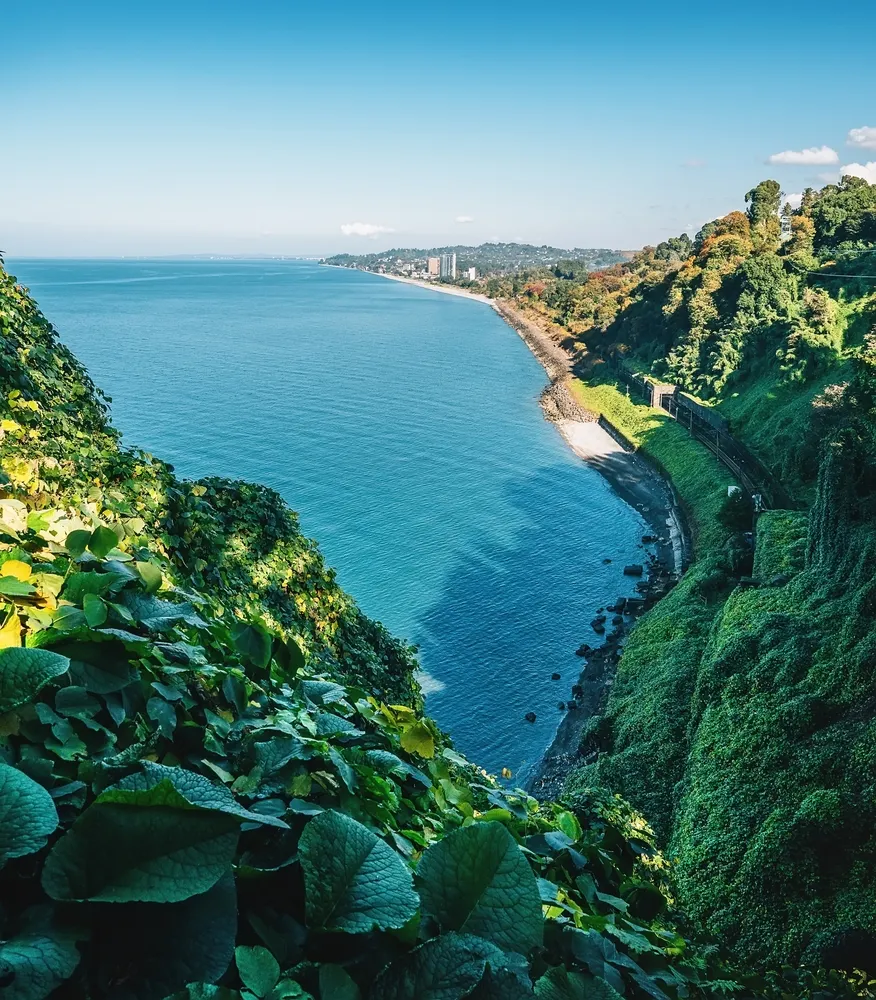
Want early access to top investment deals?
We’re among the first to know about hottest presales to help clients secure the best units before public launch.
FAQ
-
Yes. If you buy real estate worth at least $100,000, you can apply for a short-term residence permit, which is usually valid for 1 year with renewal option.
-
Yes, if you meet the requirements. You can apply for permanent residence after 5 years of holding a temporary residence permit. You must show active investment in real estate or business, proof of income, and continuous residence.
-
Not directly. Georgia doesn’t offer citizenship solely in exchange for investment. However, residency by investment can lead to citizenship after 10 years.
-
You can apply for Georgian residency by investing $100,000 or more in real estate. Other eligible grounds include employment, family reunification, and study.
-
Legal stay in Georgia with no visa limits
Right to buy and register property
Access to local healthcare and services
Option to apply for permanent residence or citizenship over time
Favourable tax regime and business access
